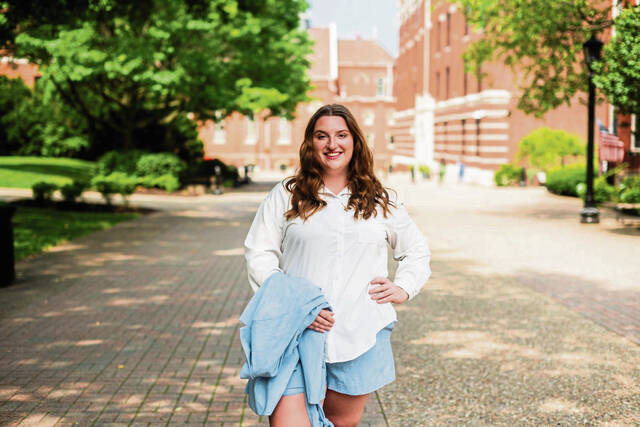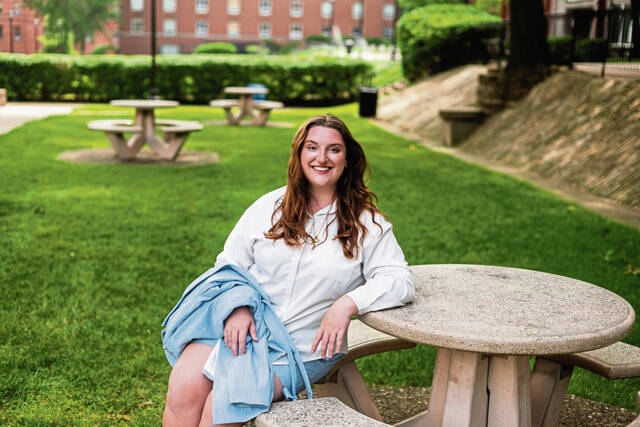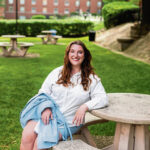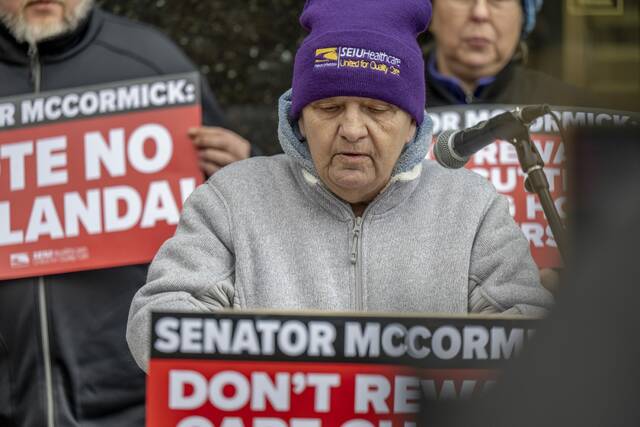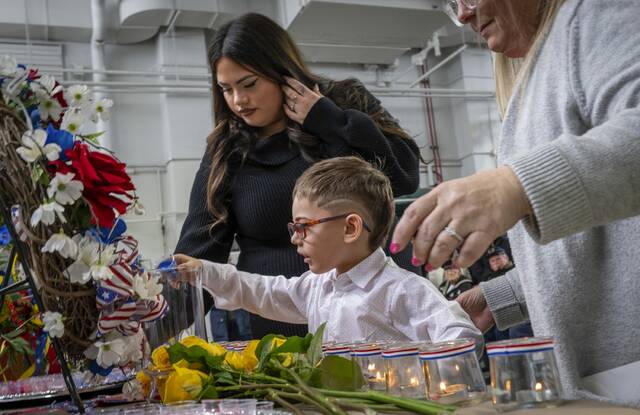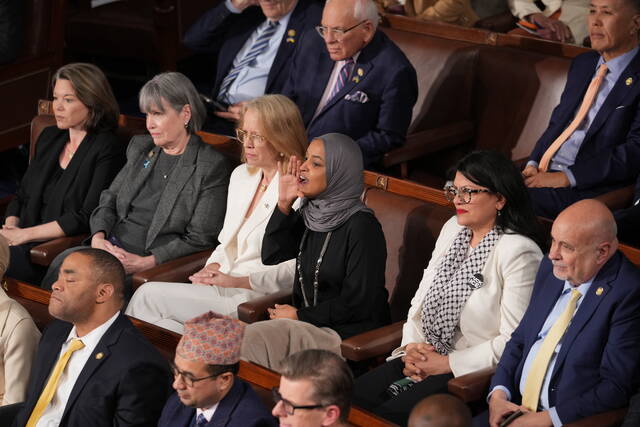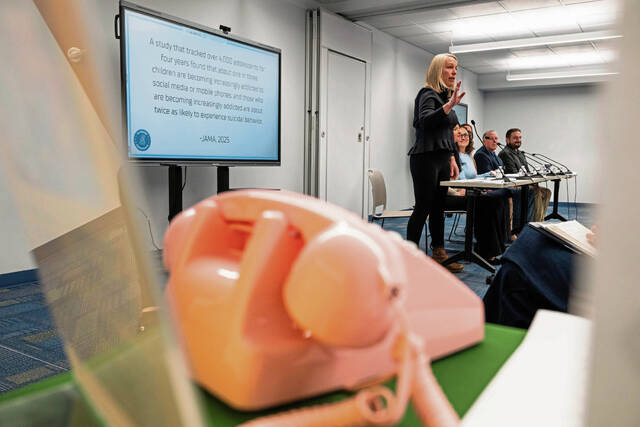Julia Cassidy says she has always felt confident expressing her conservative political views at the University of Pittsburgh, even though they aren’t shared by most of her peers.
Since Donald Trump regained the Oval Office, though, Cassidy, president of Pitt’s College Republicans, says she has noticed more students sharing conservative views in public.
“When we won, it was like a sigh of relief,” said Cassidy, 20, of Bucks County, an incoming junior studying political science. “The people we pushed to get in office won. It felt like it was our time to use the momentum we worked to build.
“For people who were more hesitant, it made them more confident.”
Even with protests and controversy surrounding President Trump’s visit to Carnegie Mellon University in July, Republican club leaders at college campuses say there has been growth and interest in conservative ideals. And conservative students are becoming more comfortable expressing their views on campus, despite often being in the minority in this region.
“What I’ve found in the last couple of years, it’s become a lot better,” said Anthony Cacciato, president of CMU’s College Republicans. Cacciato, 21, of New York is an incoming senior studying economics and political science.
A 2024 national survey from Philadelphia-based Foundation for Individual Rights and Expression (FIRE) found more than 1 in 3 conservative college students reported feeling pressure to avoid discussing controversial topics, while 30% of moderate students and only 19% of liberal students reported the same.
In addition, 38% of conservative students said they were “more likely to self-censor on campus now — at the time they were surveyed — than they were when they started college.” Only 20% of liberal students agreed with that statement.
“There’s definitely data that shows conservative students, at a higher frequency, can be less comfortable expressing their views,” said Sean Stevens, FIRE’s chief research adviser.
At Duquesne University, liberal students outnumber conservative students about 3-to-1, said outgoing College Republicans president Ava Hickman, a 19-year-old from Beaver Falls.
“I definitely did have a little bit of negative experiences mixed as well, but I think that’s something that comes with the job, and you have to take it like water off your back,” said Hickman.
Cacciato said he and some of his peers at CMU have been called “fascists,” “extremists” and “bad people” because of their views.
Cassidy said she also has faced resistance at Pitt for her opinions, remembering a professor who pushed back more on her comments in class than those of her liberal classmates. She recalled, the day after Trump was elected to his second term, the professor said “everyone” was not happy with the results.
“That was challenging, but I appreciated that, and navigating how you do that when you have a professor who doesn’t like my views,” Cassidy said.
But also, on the day after the election, more than 100 students attended a College Republicans meeting, Cassidy said.
“It was definitely a stark contrast to the first semester,” she said. “Students were feeling more confident in sharing their beliefs.”
Duquesne’s College Republicans also saw a growth in interest over the past academic year, Hickman said, including from students who were “in-between” politically and wanted to learn more about conservative ideals.
“Duquesne, being a Catholic school, there are a lot of common values among students,” she said. “There is some level of cohesion and unity between students.”
Cacciato said CMU’s numbers nearly tripled last year: from about 30 members to 82.
“People wanted to get involved and learn what Republicans and conservatism are,” Cacciato said. “Our commitment to being very visible on campus helped that quite a bit.”
Cacciato attributed the increase to the club’s commitment to open dialogue, making a point to reach out to College Democrats for public, respectful discourse.
“We’re putting faces to an idea,” he said. “Knowing your friend in class with different beliefs is still a reasonable person. We’re trying to break through those echo chambers that have been created for a lot of people, especially people who are left-leaning on campus.”
There were external factors as well, Cacciato said. Nationally, younger voters shifted to the right during the 2024 election.
“Every college campus is unique in its own ways. … The national political climate still impacts all of those places,” said Stevens of FIRE. “Notably, with Trump winning the popular vote, that emboldens people on the right to be more comfortable expressing their views.”
Cassidy said, during her time at Pitt, the university administration has been helpful in keeping students safe while also letting them voice their opinions.
“We are definitely starting to see that tide shift a little bit,” she said.
CMU, Pitt and Penn State have webpages outlining their policies and commitment to upholding protected free speech on campus.
“Freedom of expression is central to Carnegie Mellon’s mission, and we have a longstanding and deep-rooted commitment to upholding it and its companion of academic freedom on our campus,” said CMU spokeswoman Cassia Crogan. “These are core values of our institution and to the success of higher education, where our spaces should be a place of challenging ideas, critical analysis and thoughtful discourse and dialogue.”
At Pitt, spokesman Jared Stonesifer said, “Upholding the principles of free speech and supporting our students in learning how to constructively engage with others on challenging topics is vital to Pitt’s role as an institution of higher education.”
Penn State spokeswoman Tyra McGarvie said the university “is committed to protecting free speech as a fundamental component of higher education and, as a public institution, upholding its obligation to protect free speech through viewpoint-neutral policies and a culture of open, civil dialogue.”
Cacciato said, historically, CMU does a good job of allowing diversity of opinions. He did express concerns over the university’s decision to temporarily forbid new messages from being painted on The Fence, following controversy over anti-Trump messages put there by members of College Democrats ahead of the president’s July 15 visit. The Fence is a campus structure that long has served as a billboard of sorts for students.
At elite campuses, controversy is inevitable, Stevens said. It’s important for administration to stay neutral and allow students’ opinions, he said.
“Administration needs to model the behavior they’d like to see,” he said. “It starts with the policies they have on paper.”
The conservative student group leaders say they plan to keep the energy going into the upcoming year, like promoting local issues and races on this fall’s ballot.
“It’s more important than ever to be visible and present in the off years … and keep CMU a place of robust debate and free speech,” Cacciato said.


